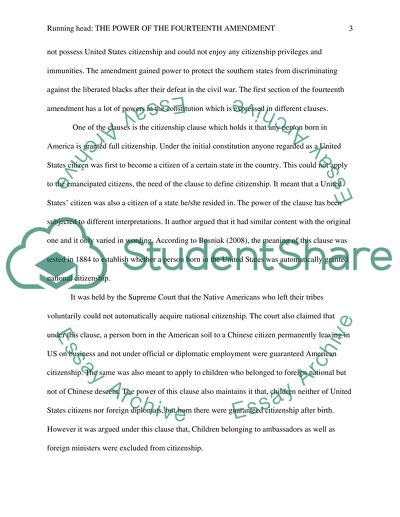Cite this document
(“The Power of the Fourteenth Amendment Research Paper”, n.d.)
Retrieved from https://studentshare.org/family-consumer-science/1416965-the-power-of-the-fourteenth-amendment
Retrieved from https://studentshare.org/family-consumer-science/1416965-the-power-of-the-fourteenth-amendment
(The Power of the Fourteenth Amendment Research Paper)
https://studentshare.org/family-consumer-science/1416965-the-power-of-the-fourteenth-amendment.
https://studentshare.org/family-consumer-science/1416965-the-power-of-the-fourteenth-amendment.
“The Power of the Fourteenth Amendment Research Paper”, n.d. https://studentshare.org/family-consumer-science/1416965-the-power-of-the-fourteenth-amendment.


